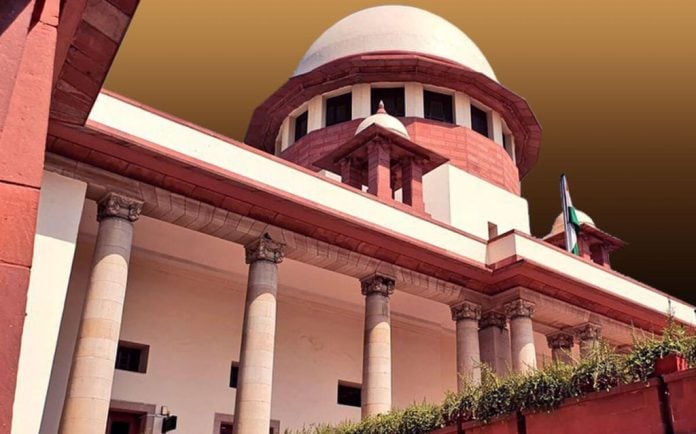The Supreme Court, while taking into consideration the alleged attacks against Christian priests and Christian institutions across the country, directed the Union Ministry of Home Affairs to collate data from different States and file an affidavit on their compliance with the directions issued in the Tehseen Poonawalla vs Union of India case against mob violence
The Bench of Chief Justice of India (CJI) D.Y. Chandrachud, Justice P.S. Narasimha and Justice J.B. Pardiwala passed the order on a petition seeking directions to prevent such attacks.
The top court of the country had directed the State of Jharkhand, on its previous hearing, to file a verification report regarding compliance with the Tehseen Poonawalla judgment.
Additional Solicitor General Aishwarya Bhati informed the court on Wednesday that the State of Jharkhand had submitted requisite data as per the orders of the court but the State of Chattisgarh was yet to file its report.
Standing Counsel for the State of Chhattisgarh, Advocate Sumeer Sodhi submitted that Chattisgarh had already complied with the directions and submitted its report.
The Apex Court then directed for a copy of the report to be furnished to ASG Bhati during the course of the week.
The ASG contended that the Union Ministry of Home Affairs, in any event, was going to prepare its report in terms of the directions of the court on or before the next date of listing.
Representing the petitioners, Advocate Colin Gonsalves apprised the court that attacks against the Christian community had been exponentially increasing.
He pointed out that when the case was filed, he expected that giving all these examples would be a deterrent. Now, there was some enquiry going on. The latest one ended in mid-2022. Post 2022, there has been an exponential rise in attacks against Christians everywhere, added Gonsalves.
He said the People’s Union for Civil Liberties, a human rights body, had come out with a book on 2022-23, which claimed that around 600 attacks against Christians were reported in Chhattisgarh during the period, which was the highest ever.
The Advocate alleged that the pattern of the attack was such that first, the community was attacked, then the priest was arrested, the prayer meetings were stopped and an FIR was registered against the Christians.
He further alleged that the Christians were being attacked and FIRs were also being filed against them. They were struggling to get out on bail, added Gonsalves.
He said as per the order of the Apex Court in Tehseen Poonawalla, nodal officers were responsible to act as a buffer between the assailants and the community and duly register FIRs. However, the nodal officers had not been registering any FIRs, he added.
As per the Counsel, the nodal officers had been notified, but they were not registering a single FIR. Hate speech was exploding now. Television, newspapers, digital media were full of it. Rallies were taking place in Chhattisgarh and Uttar Pradesh, but the nodal officers did not register a single FIR.
The Advocate further sought directions for preparation of a system, wherein if a vulnerable community could not come forward due to fear, the nodal officer would record the hate speech. This was not happening anywhere in the country, he pointed out.
The ASG then sought two weeks time to collate data, which the Supreme Court granted, stating that after receiving the affidavit, the top court of the country would go to each State.
The Apex Court listed the matter for further hearing on April 14.


